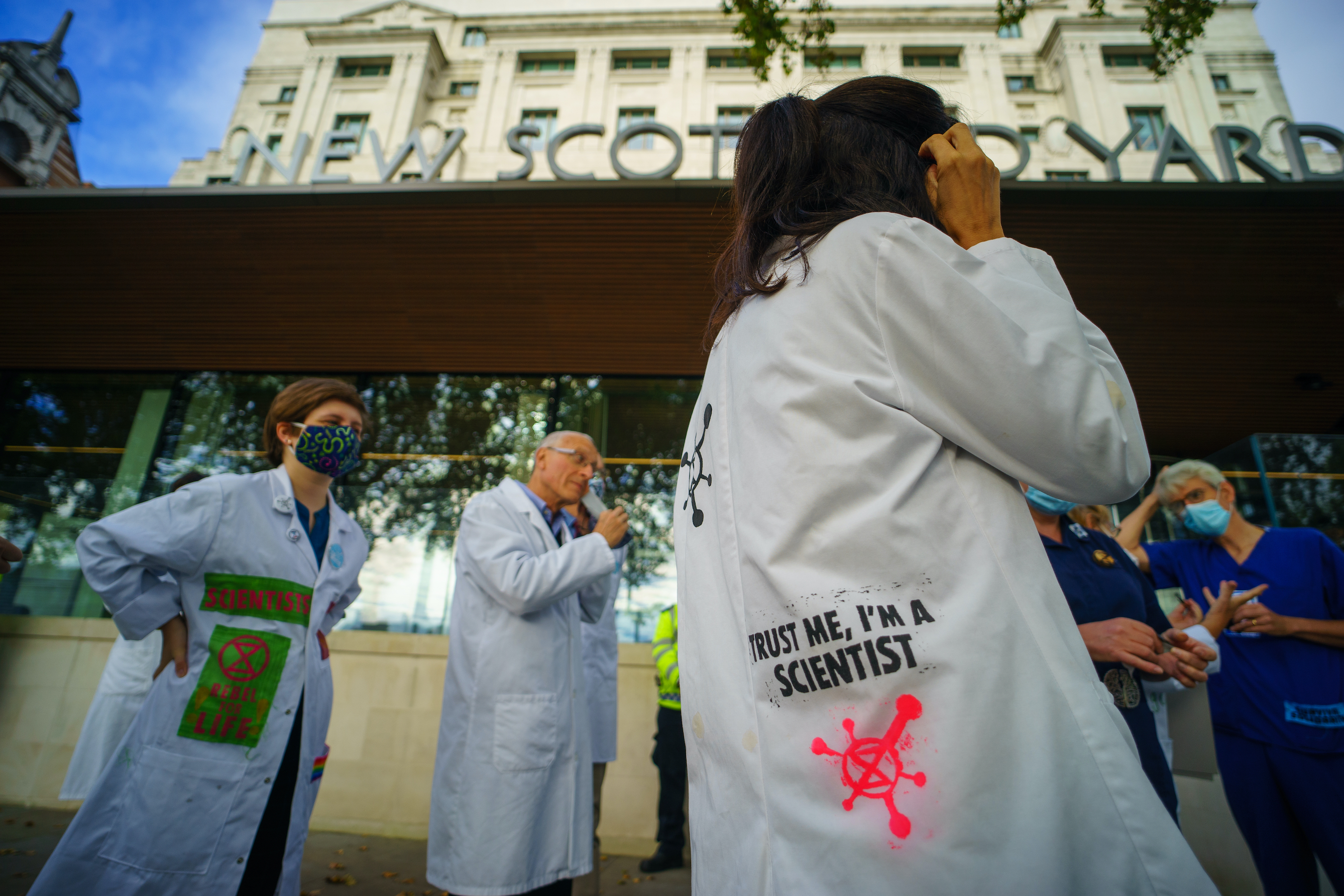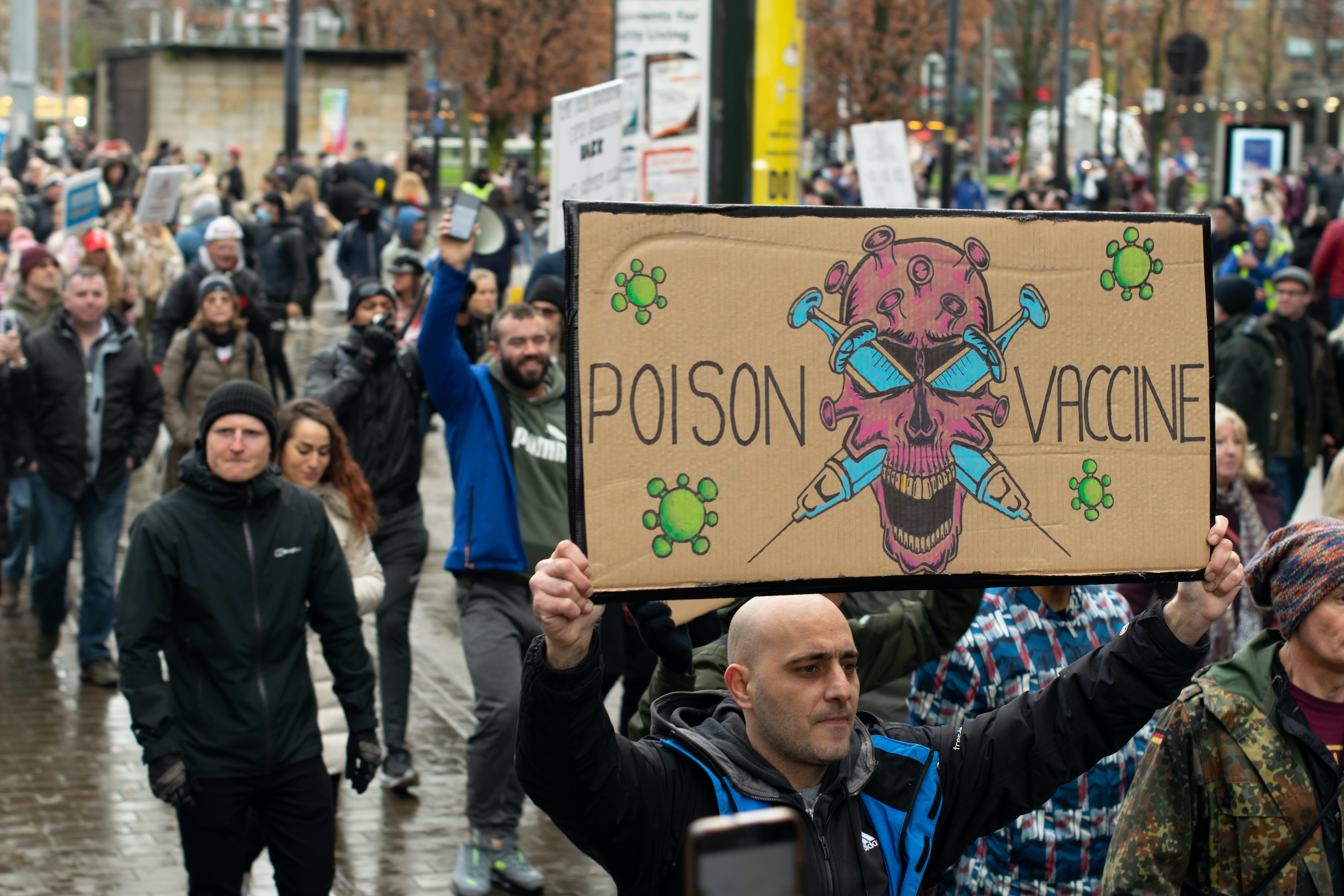During my career, there have been tremendous advances in the contribution of women to science. I’m in the biomedical sector, and I wouldn’t claim that the advances have been equal across all aspects of science. If I think back to my PhD, there was quite a long while where I was the only female PhD student in the department. If I look now, to the present day, we have at least equal numbers of women and men starting their careers doing PhDs. We see a good representation in the doctoral cohort. We do see a decline in representation of women in later career stages and much more still needs to be done to achieve a good gender balance in senior positions in academia.
Building public trust in science
EMBO Director
- Much more still needs to be done to achieve a good gender balance in senior positions in academia and to address sexual harassment in the workplace.
- In terms of creating society’s trust in scientists, the most important thing must be to be willing to explain the science – the knowns and the unknowns.
- Disagreement is what drives science forward, but it’s important to do it in a constructive way so that nobody gets hurt personally or professionally.
Women in science

Photo by Motortion Films
Sexual harassment in the workplace
Sexual harassment has not gone away over the years, but it is much less tolerated than it was. The idea that it would be all right to pinch somebody’s bottom as they walked past or to ask their hotel room number at a conference … I think these days people would call out that behaviour, and that’s hugely positive. In general, much more needs to be done to protect people from behaviour that amounts to harassment and we need to provide support to people when they feel that something is not right.
Over the years, it was almost always a young woman who would tell me about a problem that she’d experienced. I would listen carefully and then ask them what they would like me to do. Typically, the young woman would say that she didn’t want me to do anything. She would want to look for another job and would ask me if I would write a reference.
Of course, while I respect that approach, the problem that you then have is opportunity for poor behaviour to carry on. So, better support is very important. I believe that this is being discussed more openly now and things are definitely going in the right direction, even though they’re far from perfect.
Encouraging women to pursue careers in science
Efforts to encourage girls to be interested in STEM subjects vary quite a lot from country to country, but I would say that in the UK we’ve made great progress. There are many outreach programmes where we send young women scientists into schools to talk about what they do and to discuss the possibilities of doing STEM subjects. So, at least in Britain, I think we’ve got a good number of women going into STEM subjects.
If you look more broadly at young scientists from different cultural backgrounds, again, there is more to be done, but there is quite good targeted effort. We need a diverse workforce, not just women, but people from all across society, and to make the case that it is an attractive career. You can’t blame someone who’s contemplating a career in science, looking to the future and thinking: how much money am I going to earn? Would I not enjoy more prestige if I were a doctor, a lawyer or an engineer? So, how do we articulate the aspiration that science is a great career and that it is rewarding, no matter what your background is?
Building public trust in science

Photo by Vincenzo Lullo
In terms of creating society’s trust in scientists, the most important thing must be to be willing to explain the science – the knowns and the unknowns. One of the things that we joke about now is that everybody wants to be an epidemiologist or an immunologist. The science behind those disciplines is complicated. I felt that in the early days of media coverage of COVID-19, there was a certain amount of impatience from politicians and journalists, asking how many people were going to die and when schools could re-open. The idea that a scientist couldn’t give a straight answer to a straight question caused a certain amount of frustration.
But what we’ve seen in Britain is a growth in trust between scientists and the media – not all aspects of the media, but, for example, in regular science briefings, often on papers that are not formally published yet, but have been shared at preprint. That becomes a true partnership, where you have journalists or people on TV and in other media wanting to get information out of scientists, but realising that to get a crisp answer, they have to ask the right question.
Challenges during the COVID-19 pandemic
One of the issues that emerged early on in the UK was why people from diverse ethnic backgrounds were faring worse than white people, in terms of hospitalisations and deaths. The answers are very complex, but being open and saying we don’t know them, giving possible answers or saying that we will do a proper study, I think has helped.
Of course, one of the big challenges around the world is to make sure, first of all, that people have access to vaccines, and secondly, that they have the information they need to feel that vaccination is safe. With vaccination, the approach is probably not just to say ‘We’re scientists. Here’s the data: trust this’, but to listen in a respectful way to why different communities could be distrusting of the science.
One of the things that I sometimes joke about, but I am actually quite serious about, is that when we’re talking about new treatments in Britain, we have a national health service which is paid for by the taxpayer. Because we have a national health service, you can be pretty confident that a treatment will not be rolled out and paid for with the NHS unless there’s good evidence that it’s going to work.
Addressing the anti-vaccine movement

Photo by John B Hewitt
Anti-vaxxers, people who deny the benefits of vaccination, often come at it from the feeling that their bodies are being manipulated for the financial gains of big pharmaceutical companies. Maybe people feel that there is some sort of conspiracy to manipulate or subjugate them. It’s good to try to understand that, but at some point to show leadership – so, to explain what the evidence is, in as clear a way as possible, that a vaccination will give you protection.
Sometimes, people are worried about side effects, and so it comes down to understanding the risk. The kinds of comparisons that people will understand are what is the “risk” of winning the lottery: how many people buy a ticket and how many prizes are awarded? Trying to get those concepts over is an important part of it. Sometimes, it’s trying to reveal yourself as a person rather than as a scientific expert, in saying: ‘I respect what your decision is, but this is what I would do as an individual. This is what I would do with my family and what my friends would do.’
Disagreements between scientists
Disagreement is what drives science forward, in my opinion. The important thing is to disagree in a constructive way so that nobody gets hurt personally or professionally. I’m somebody who has always enjoyed a good disagreement about science, and I reserve the right to change my opinion depending on the latest thing I’ve seen, but I do realise that that style, possibly adversarial style, of doing science is one that does not work for everybody, and can be genuinely disturbing. So, we somehow have to create a way in which we have space to disagree.
This is very important for the progress of science, because if a junior scientist doesn’t feel safe to disagree with a more senior or established scientist and feels that it would hurt their career, that’s incredibly damaging for the scientific enterprise. Embracing disagreement, encouraging it and also owning up when you’re wrong is very important for science to flourish.
Discover more about
Challenges in science today
Smith, K. A., Arlotta, P., & Watt, F. M. (2015). Seven Actionable Strategies for Advancing Women in Science, Engineering, and Medicine. Cell Stem Cell, 16(3), 221–224.
Watt, F .M. (2018). (More) women in science. Nat Rev Mol Cell Biol, 19, 413–414.
Srivastava, D., Watt, F., & Daley, G. (2020). Stem Cell Research Responds to COVID-19. Cell Stem Cell, 26(6), 811–814.